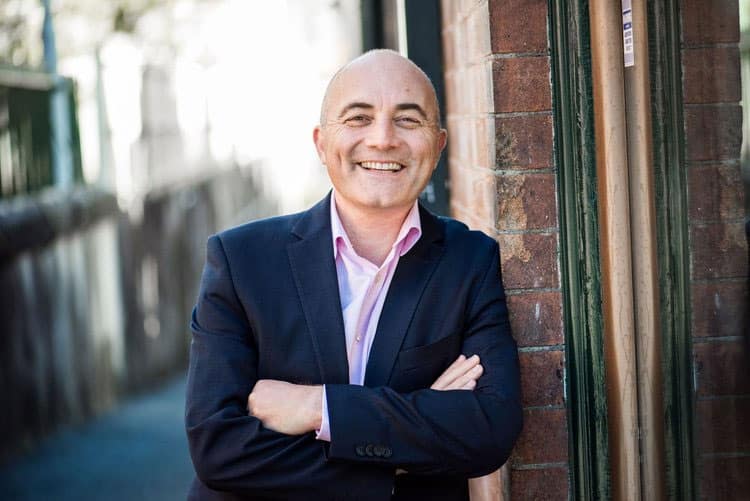The Power of Listening to what’s NOT said

In 2015, I was facilitating a group of twelve leaders in a technology company in talks about the future of the organization. It was 12:30 p.m. and I posed a question to the group: if this company was an animal, what would it be? As we went around the room, the answers were very similar: eagle, falcon, hawk, cheetah, leopard, lion, and so on. And the explanations were consistently about speed and domination.
By 12:55, we had completed eleven of the twelve leader discussions about their chosen animals, and the CEO was tapping their pen on the table and indicating the time to me. Lunch was due in five minutes, and I sensed they were hungry— except there was still one person to go. Lyn hadn’t explained her animal. In fact, she hadn’t said anything all morning.
I nodded to the CEO, acknowledging the time and possibly the hole in their stomach. I was curious about what else was possible for the room if they heard from Lyn. Without a word, I turned toward her—rather than making direct eye contact. I reached out with an open palm toward her and said nothing, yet invited her to explore with the rest of the room.
In a careful and measured tone, Lyn said, “I thought it was obvious!”
Then, for a moment, it felt like she stopped—in reality she had simply paused, but it felt like a full minute as the silence filled the room and the tension on the face of the hungry CEO became more evident. They gave me a look that felt like they were sending a laser beam out from their eyes to explode my head. Patiently, I gestured to Lyn to continue.
“I thought it was obvious—we are a snake.”
Pause for a moment and place yourself in that room. When you heard Lyn say “snake,” what would have gone through your mind?
If you are from the West, the snake conjures negative emotions: slithering, slippery, untrustworthy, unexpected attacks. A snake is not something to be admired. Yet what you don’t know about Lyn is that she is from China, and what a snake means to her is very different from the sneaky serpent characteristics of a snake in the West.
The tension in the room increased as Lyn continued with her explanation. She said, “We have forgotten to shed our skin like a snake each season. Our past skins are holding us back and we need to shed those skins from our past for our new customers and staff.”
Immediately, the tension was released and the room exploded into a vigorous conversation about snake skins and what is holding back the business. Dated processes, systems, and mindsets not previously discussed were liberated by the mere mention of the snake.
The CEO and the other leaders found a new source of energy, and lunch didn’t commence until 1:35 p.m. After lunch, completely different plans emerged because the group was patient enough to explore more opinions and perspectives rather than listening only to the initial consensus.
This is the power of exploring longer and not being fixated on discovering the correct or common issues, and instead being comfortable with navigating in an unknown direction that holds an unknown impact.
Taking the time to explore all the possibilities and all the voices in the room helped the company see many possible futures. When you always hear from the same voices and perspectives, it reinforces the obvious and known possibilities. Asking “what else” and “who else” generates multiple possibilities and opportunities.
Explore the gap
The unsaid in a group discussion amplifies if it is not carefully uncovered.
I am regularly asked to observe board and executive meetings for individual and group listening. In these situations, I notice that skilled hosts listen in two distinct ways. They notice who is speaking and who isn’t, and they notice the topics that are being avoided, ignored, or left unsaid.
These influential meeting hosts don’t wait until the end of the meeting to invite unspoken topics or individual opinions. They are regularly sensing if the gravity of the discussion is concentrated with a minority of participants. They are looking and listening to the room for a range of views. Often, people simplify meeting participants into loud and quiet. Yet when they listen for the presence and absence of themes, many dimensions emerge:
- Customers and shareholders
- Experienced and emerging
- Experts and generalists
- Financial performance and employee compensation
- Internal and external
- Long-term and immediate
- Policy and political
- Return on investment and loyalty
- Risk and opportunity
- Suppliers and innovation
- Spoken and unsaid
When you are hosting a meeting, the first place to start is to invite people who haven’t contributed toward a discussion as early as is possible and practical in the agenda. Waiting beyond the 80 percent mark of the time allocated to a conversation is like forgetting to put yeast in your dough and then opening the oven door while it’s baking. The result isn’t the sum of the ingredients, because sequence and timing matter as much as those ingredients.
Like with a bread dough, a group’s ideas need time to blend together, rise, and finally expand to their full potential. When you wait too long in a group discussion, you miss out on vital inputs. The result is flat and usually unappetizing.
How to uncover the unsaid
“How long have you been thinking about this?” and “When did you first notice this?” are powerful questions to help the speaker express what they have already explored in their mind but have yet to verbalize.
These curious and straightforward questions are profound because they allow the speaker two opportunities. One is to say something out loud for possibly the first time. Verbalizing will help them connect with their thoughts differently than when they are only speaking to themselves to explore the concepts in their mind. Your role as the listener is to help the speaker verbalize their ideas and issues in multiple ways and times.
Written by Oscar Trimboli, Award-Winning Podcast Host, Professional Speaker, and Author. Adapted from How to Listen: Discover the Hidden Key to Better Communication.
Have you read?
Prescriptive Policies Undermine the Freedom to Innovate by Lisa Gable.
What the Future of Cyber War Holds by Brian Wallace.
Getting Started on Your First Book by Vincent Barletta.
Keynote Speakers in a Metaverse – The Future of Business.
The Pandemic Isn’t The Last Disruptor You Will Face: How To Get Ready For The Next One by Steven L. Blue.
Add CEOWORLD magazine to your Google News feed.
Follow CEOWORLD magazine headlines on: Google News, LinkedIn, Twitter, and Facebook.
This report/news/ranking/statistics has been prepared only for general guidance on matters of interest and does not constitute professional advice. You should not act upon the information contained in this publication without obtaining specific professional advice. No representation or warranty (express or implied) is given as to the accuracy or completeness of the information contained in this publication, and, to the extent permitted by law, CEOWORLD magazine does not accept or assume any liability, responsibility or duty of care for any consequences of you or anyone else acting, or refraining to act, in reliance on the information contained in this publication or for any decision based on it.
Copyright 2024 The CEOWORLD magazine. All rights reserved. This material (and any extract from it) must not be copied, redistributed or placed on any website, without CEOWORLD magazine' prior written consent. For media queries, please contact: info@ceoworld.biz
SUBSCRIBE NEWSLETTER








